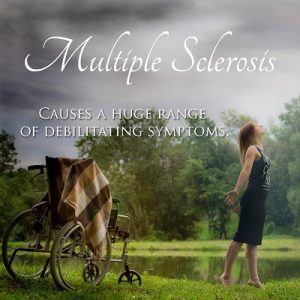 MS occurs when the immune system attacks the central nervous system, affecting the brain and spinal cord. The medical profession find MS an astounding disease because of the severity, and variety of ways that it affects people.
MS occurs when the immune system attacks the central nervous system, affecting the brain and spinal cord. The medical profession find MS an astounding disease because of the severity, and variety of ways that it affects people.
People with MS commonly experience an unpredictable fluctuation of relapses and remissions. Attacks can last a few weeks and then disappear. However relapses can get progressively worse, more unpredictable and come with different symptoms.
MS is in itself not fatal, but some people with the disease are more susceptible to contracting other illnesses. Severe cases may involve paralysis or vision loss.
Multiple Sclerosis is a chronic autoimmune disease that affects more than 2 million worldwide. Three times as many women as men suffer from the disease. The onset of the disease usually occurs between the ages of 20 and 40.
Causes of Multiple Sclerosis
Autoimmune disease means that for unknown reasons our immune system mistakenly attacks our own healthy cells. The nerve fibers that comprise the central nervous system are encased in a protective case known as myelin sheath.
When immune cells attack the myelin sheath in the central nervous system, parts of the sheath surrounding the brain and spinal cord become inflamed, and eventually degenerate. The damage results in the disruption of nerve signals. This causes the onset of MS disease.
Although researchers are aware that the myelin sheath has been directly affected, they do not know what triggers the immune system to attack.
It is believed that genetics play a role, if one parent has MS there is a 2 to 5% of risk of their children getting the disease. Scientists believe that MS victims are born with a susceptibility to adversely react to certain unknown environmental triggers.
There has been a noticeable pattern of increased cases of MS sufferers in countries farthest from the equator, who as a consequence are exposed to less sunlight. Epidemiologists theorize that there may be a correlation between a lack of Vitamin D and proper function of the immune system.
Viruses are known to cause inflammation, and to break down myelin. Researchers therefore consider it is possible that a virus could trigger MS. Investigations have begun into several bacteria and viruses to discover if they have any involvement in the development of MS. The focus is on the measles virus, human herpes virus-6 and Epstein-Barr virus (EBV).
Symptoms of MS
Nerve fibers carry messages to and from the brain. The damaged parts of the myelin sheath leave scar tissue, or sclerosis. It depends on where sclerosis occur within the nervous system as to how and where the symptoms will manifest in the body.
Chronic fatigue is one of the most debilitating symptoms of this disease. MS related fatigue occurs daily, worsens as day goes on and is more severe than normal fatigue. It may be the most conspicuous symptom in a person who otherwise has minimal symptoms.
Lack of co-ordination of muscle movement (ataxia), balance and functioning of the arms and legs are affected. Chronic back and muscle pain can result from simply walking. Sudden involuntary movements in all parts of the body is also common.
Cognitive dysfunction is more common among long term sufferers of MS. However, around half of the people with this disease display a decreased ability to concentrate, process information and remember things.
Major depression is also an understandable condition of the disease. The stress of MS can also cause irritability, mood swings and sometimes bouts of uncontrollable crying and laughing.
Altered sensory sensations to the skin like numbness, pins and needles, tingling and tightness, and sharp stabbing pain are also present in some cases of MS.
Eyes are sometimes affected by the disease. When the optic nerve has become inflamed there is a potential for blurred vision, double vision and uncontrolled eye movement. Blindness has also been known to occur in progressive cases of MS.
Continence problems, involving bladder incontinence, diarrhea and constipation, are an embarrassing issue associated with this condition.






